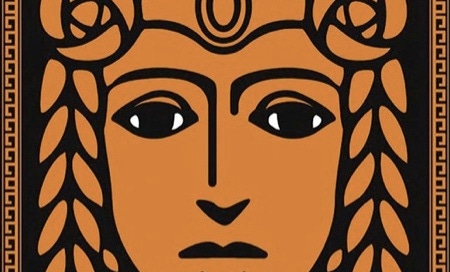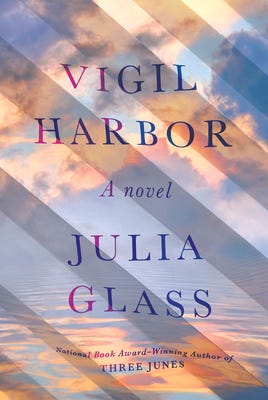Hi everyone,
Some of you might have noticed there was no newsletter last week. I've decided to play around with the amount of content I’m sending out to ensure I’m giving you all only the best and most relevant possible recommendations. That said, starting now, I’m switching to a monthly format, going out the first Friday of each month.
I would love any and all feedback on the frequency of the newsletter in the comments section! I hope you’re still enjoying and getting great options for your next read from these.
I’ve got some good stuff for you this week in both fiction and nonfiction. There’s a fantastic retelling of a classic Greek myth, an insightful look at the world’s geopolitical future, and a few others.
Happy reading!
Vigil Harbor
by Julia Glass
Topics: Literary Fiction, Dystopia, Environmental Futurism
In the near future, a motley group of residents in a quaint Massachusetts beach town ride out the world’s environmental cataclysms and subsequent ecoterrorist attacks. The community’s members are interconnected in myriad ways, and mysteries surface when two outsiders come to town.
A literary feat that defies easy categorization, Vigil Harbor is both a devastating look at an imminent future made increasingly precarious by man, and an homage to the indomitable spirit of humankind. Finely crafted characters, like a marine biologist whose wife leaves him to join an end times cult with a neighbor, and a thoughtful arborist whose tenderness for trees is palpable, make this bewitching novel worth reading.
Circe
by Madeline Miller
Topics: Greek Mythology, Fantasy, Retellings
A daughter of the Sun God Helios is banished by Zeus to a desolate island in this retelling of a classic Greek myth.
Quite honestly one of the most beautiful books I’ve read in recent years, this whole story takes place in the world of Greek gods and goddesses. Miller has a hypnotic, mesmerizing way of writing that makes you feel as if you’re on the island with Circe. I would encourage those who wouldn’t ordinarily pick up something like this to do it anyway: it’s that good.
The Power of Geography: Ten Maps That Reveal the Future of Our World
by Tim Marshall
Topics: Geopolitics, International Relations, Cartography
Ten maps explain global politics, the dynamics between world powers and what it all means for the future.
Foreign affairs expert Tim Marshall silos this book into ten slim but dense chapters, each dedicated to a different region of the world. He includes places like the U.K., Iran, and Australia, and dedicates the final chapter to space. He does a remarkable job in each chapter of condensing a bit of the region’s history, how its geography has shaped its current role in the world, and how it might play into the future of global politics. He’s written another similar book before this one, called Prisoners of Geography: Ten Maps that Explain Everything About the World, which, full disclosure, I haven’t yet read, though it’s on my list.
Bone Deep: Untangling the Twisted True Story of the Tragic Betsy Faria Murder Case
by Charles Bosworth Jr. and Joel J. Schwartz
Topics: True Crime, Police and Law, Court Cases
A husband returns home from his weekly game night to find his wife has been killed. He is soon the number one suspect in the murder, despite a more sinister character lurking just outside the police’s line of sight.
This is less a story about a horrific crime (though that certainly is a large part of it), and more a story about a mind boggling case of prosecutorial misconduct and police ineptitude. Written in part by the lead defense attorney in the case, it’ll have you gasping aloud at how off the rails unhinged this case is. Sometimes the truth really is stranger than fiction.
Squirrel Hill: The Tree of Life Synagogue Shooting and the Soul of a Neighborhood
by Mark Oppenheimer
Topics: Judaism, Crime, America
In October of 2018, a gunman walked into a Pittsburgh synagogue and killed 11 worshippers. This is the story of a close knit Jewish community, the attack, and its aftermath.
The author of this book focuses not primarily on the crime or the criminal, but rather, the community and its history, and how both of those things are interwoven and impacted the aftermath of the tragedy. What occurs after the shooting, as told here, is at once wholly unique to this particular neighborhood and tragically commonplace. Oppenheimer paints a deeply human, raw portrait of a religious town riven by just one moment, and how humans come together to lift each other up.








Thanks for making your recommendations on a monthly basis gives me time to catch up
I for one am relieved that you're moving to monthly since I can try to work through some of my book backlog before you hit us with more great recs :)